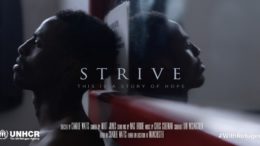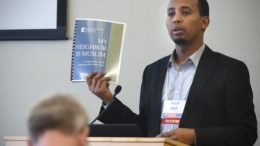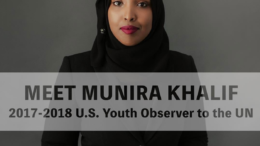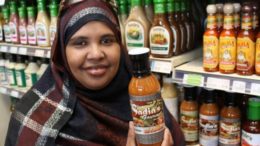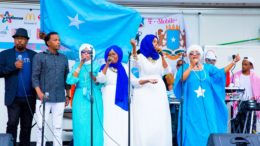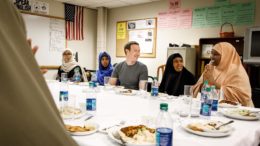Around the Diaspora November 2017
1. Amina Abdul Kadir Wins the Inaugural Women Peacebuilder for Water Peace Prize Amina Abdulkadir, a researcher from the Peace and Development Research Centre (PDRC), has won the inaugural Women Peacebuilder for Water (WPW) Prize for her contribution towards the resolution of water-related conflicts in Puntland. Amina, 31, accepted the award on September 27 in Milan, Italy, during the first annual ‘Rules of Water, Rules for Life’ summit, organized by Milan Global, and the Milan Center for Food Law and Policy. She was selected from a pool of ten finalists from Finland, Haiti, Italy, Kenya, Sudan, Somalia, Switzerland, Trinidad and Tobago, and the United States. 2. Sada Mire Selected for the International Hay Festival List of 30 Thinkers and Philosophers The Hay festival is an event that brings readers and writers together for an opportunity to collaborate. Nobel prize winners, scientists and even politicians like Bernie Sanders make appearances. 30 inspiring and young novelists, scientists, philosophers, performers, and activists were selected for this year’s Hay festival. Sada Mire, an Archaeologist at the Faculty of Archaeology in Leiden, is one of these 30. In the next ten years, The Hay Festival will promote Sada Mire’s work at their festivals around the world. In these years the…

